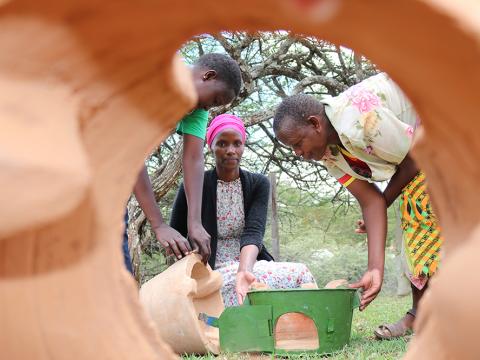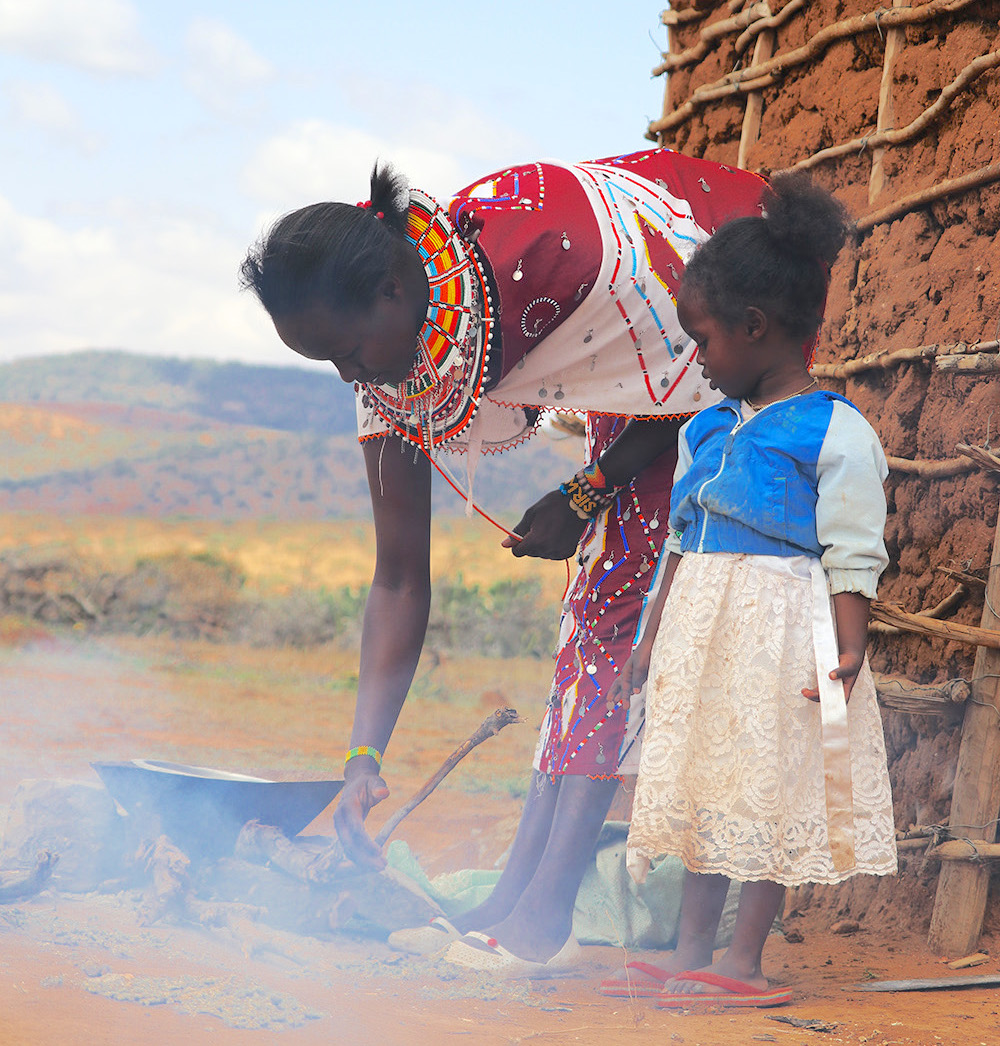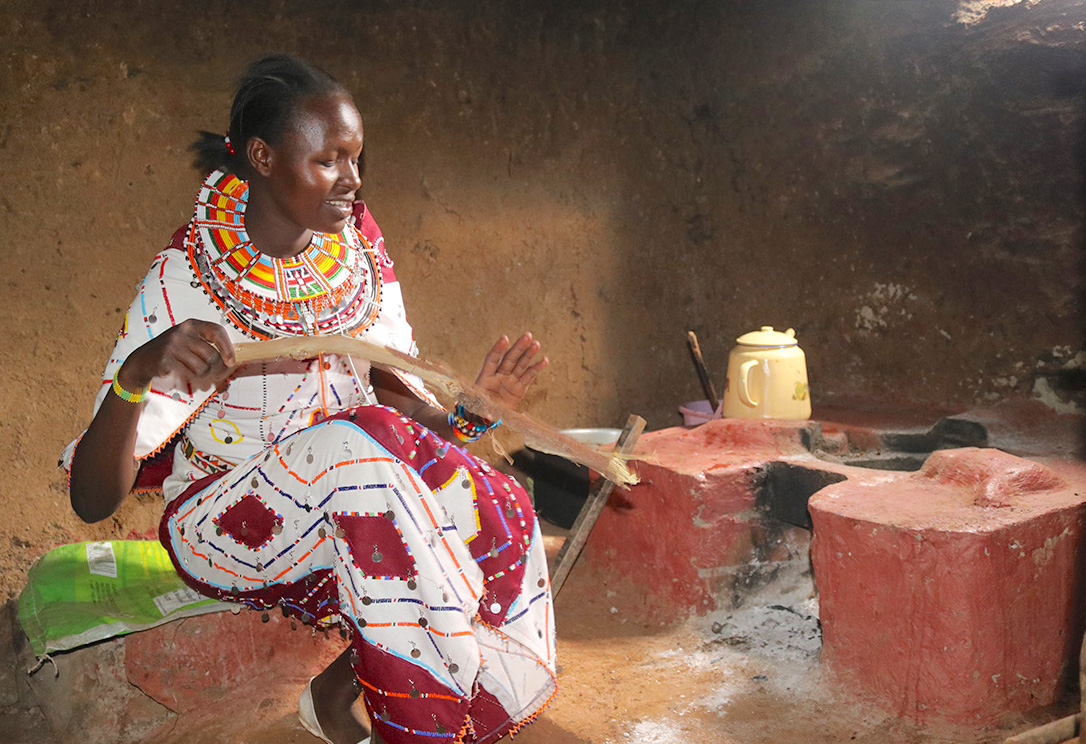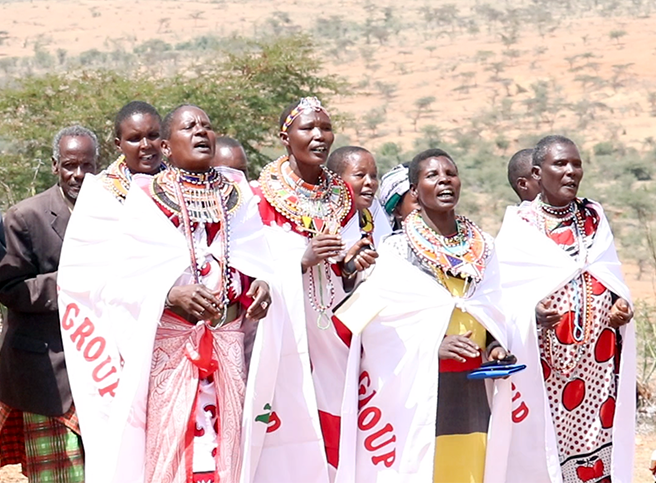Improved Cookstoves Boost Health and Economic Status of Families

By Wesley Koskei, World Vision Communications Department, Kenya
For many years, 23-year-old Petronila Sarai relied on a three stone cooking fire to prepare meals at her home in Kenya’s Laikipia North constituency. The rudimentary stove, which consumes a lot of firewood, was situated outside her home.

Each time she cooked, the smoke emanating from burning wood would engulf the air, and make its way into the house.
This resulted in family members suffering from incessant coughs, breathing complications and eyesight problems. Her children were the most affected.
"The smoke was too much and sometimes it was unbearable, especially for my kids,” says Petronila, a mother of two children.
Last year, she benefitted from an improved energy saving and environmentally friendly cookstove, popularly known as Jiko Kisasa. This is a Kiswahili language word that loosely translates to ‘Modern Fireplace’ in English.
“With this new improved cookstove, there’s less smoke so my children no longer suffer or get sick,” says Petrolina.

The distribution of the stoves, which has changed lives in communities in Laikipia North, is supported by World Vision's Integrated Management of Natural Resources for Resilience in Arid and Semi-Arid Lands programme (IMARA) in Kenya. This initiative is funded by the Swedish International Development Co-operation Agency (Sida) through the Embassy of Sweden in Nairobi.
Due to its immense benefits, families in Kenya's Laikipia North are increasingly adopting the new cookstoves, while doing away with the traditional three-stone fireplaces that were synonymous with manyattas (Masai community settlements) in the country's arid and semi-arid lands.
Since the new cookstove is fuel efficient, Petronila states that she now uses minimal firewood compared to the amounts previously used.
"I used to walk a long way to buy firewood three times a week, and it was tiring. But now I do so once weekly. This saves time and money," she says.
Aside from being a beneficiary of the improved cookstove, Petronila is among the 30 women and youth from two community groups that have received training from World Vision on how to make the cookstoves and install them in people's home.

The trainees have used the knowledge to set up thriving business enterprises by offering the installation services at a fee to interested families.
Francesca Sanaipei, one of Petronila’s group members says that the training equipped her with fundamental knowledge on installing the cookstoves and starting a business.
“We were trained on materials required for making the cookstoves, how to install them in people’s homes and how we could tap into that market to generate income,” she says.
The group installs the improved cookstoves at a cost of between 1,500 and 7, 000 Kenya shillings (15 and 70 US Dollars) depending on the type of model preferred by clients.
“That’s how we are making money,” Sanaipei adds, with excitement. “We get cash to take our children to school and buy food.”
Joseph Ethekon, the Livelihood and Resilience Specialist for the IMARA programme states that the key to creating economic empowerment is developing sustainable business models in communities.
“We’ve worked with these groups on simple, replicable and effective ways of savings and how to ensure that the there are returns on their small investments,” he says.
"It’s impressive that we introduced these fuel saving stoves, and the community is now driving that agenda while constructing them for each other,” states Tina Mukunda, the Operations Director for World Vision in Kenya.
“This is beneficial for the children living in these homes. They are no longer being sent to fetch firewood. So they get time to read and go to school,” she adds.